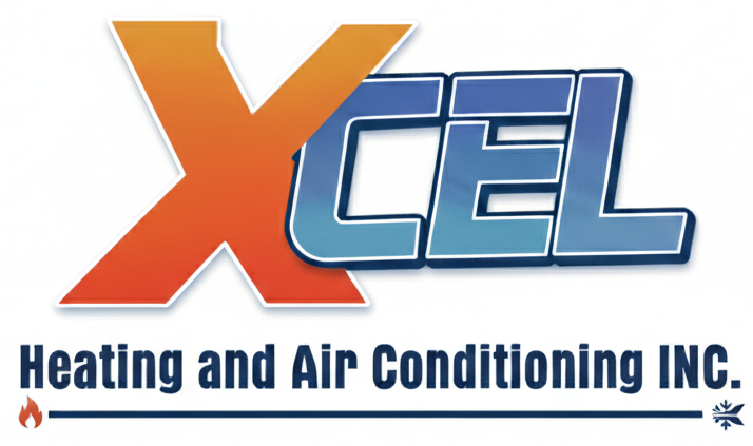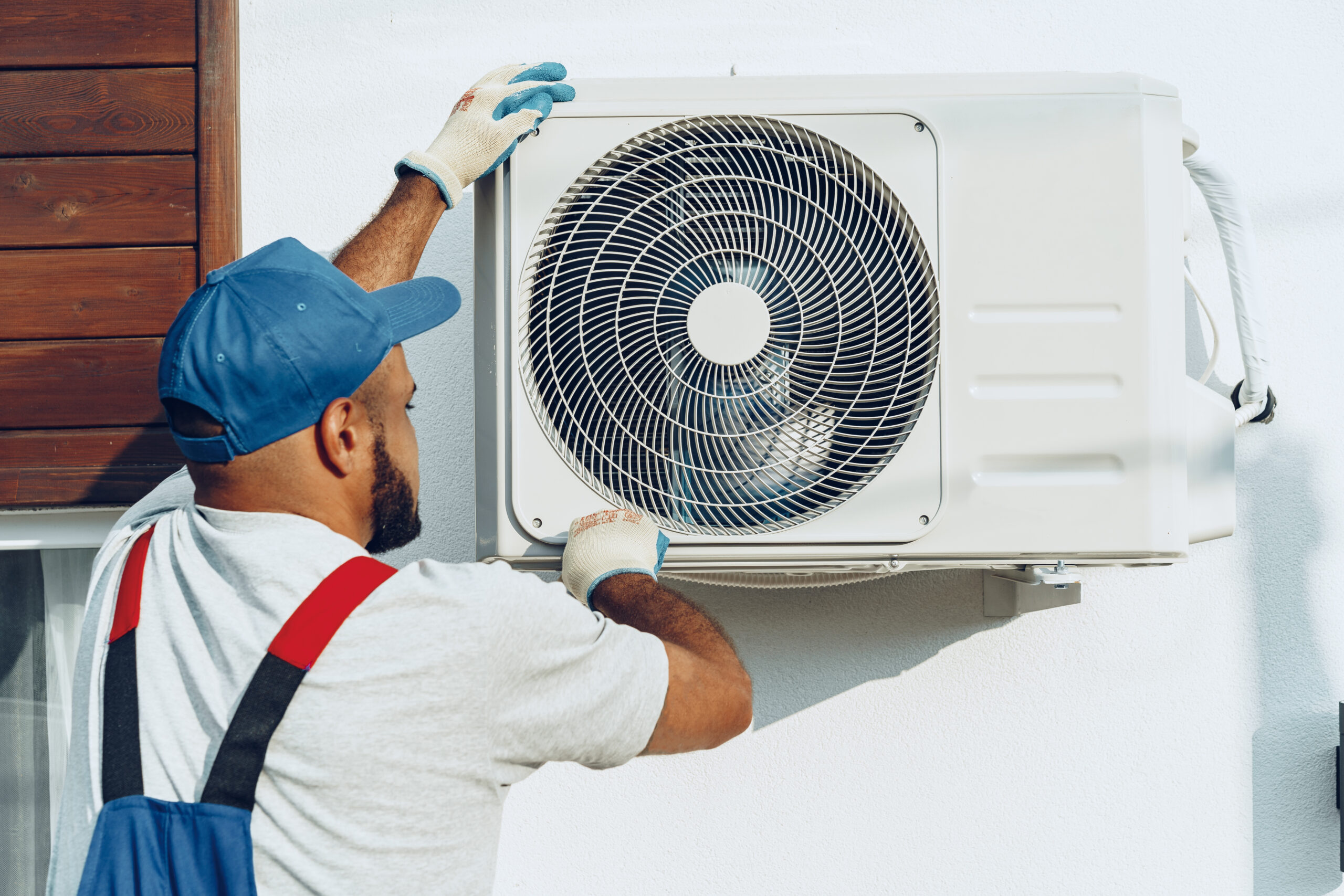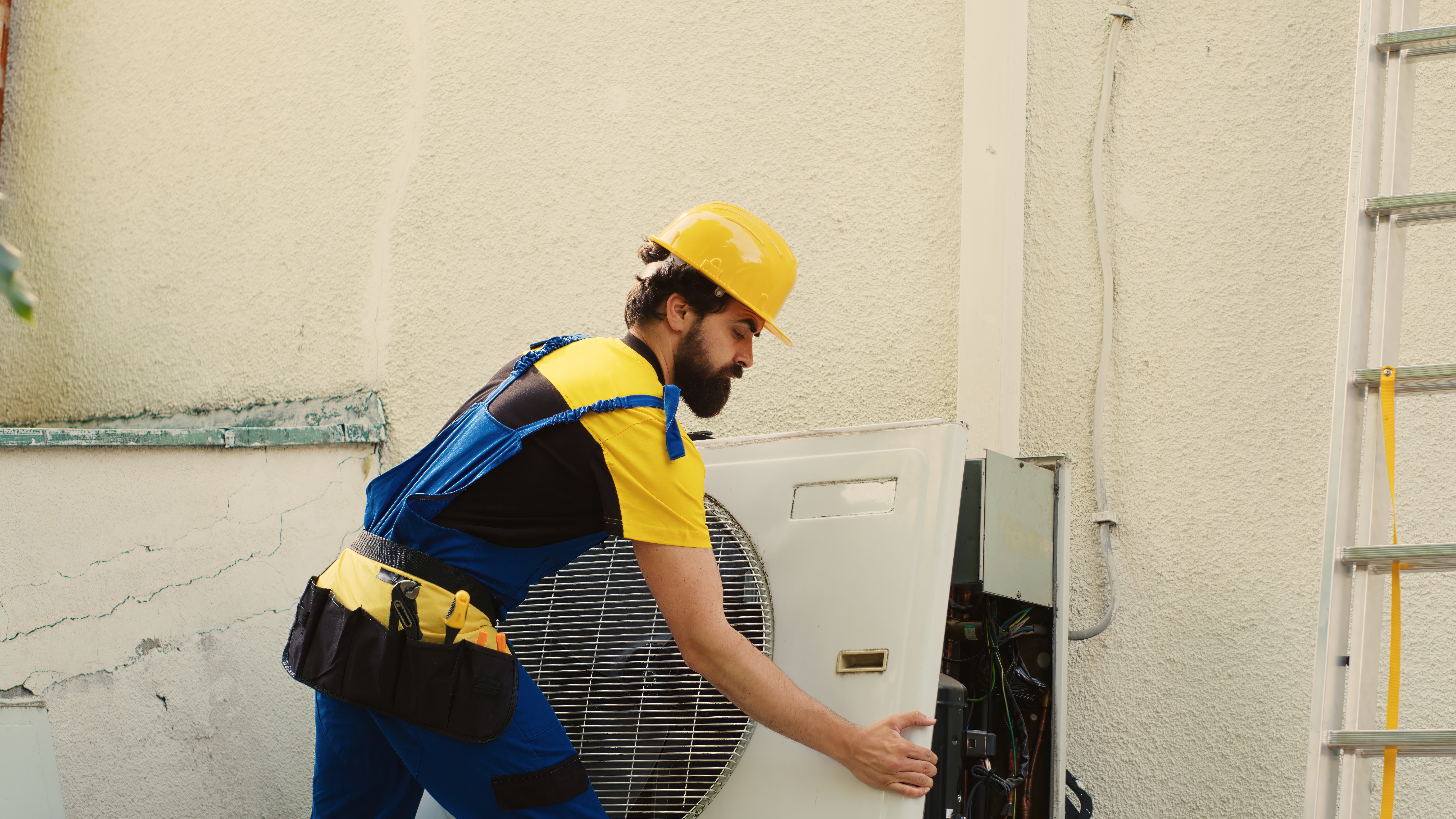How to Extend Your HVAC System Lifespan While Living Near the Coast
Why Coastal Living Challenges Your HVAC System Lifespan
Living near the California coast offers fresh air, ocean views, and comfortable weather, but for your HVAC system, that same salty breeze can quietly shorten its lifespan. Most homeowners don’t realize that coastal humidity, salt particles, and temperature swings slowly corrode internal parts, leading to early wear and higher repair costs. Understanding your HVAC system lifespan and how to protect it is the key to long-term comfort and savings.
In coastal areas like Concord, Pleasant Hill, and Vallejo, even newer units can show signs of deterioration within a few years if not maintained properly. The metal coils and electrical components are especially vulnerable. The good news? With the right care, an HVAC system lifespan that typically ranges from 10 to 15 years inland can last well over 20 years near the coast. This guide breaks down what affects that longevity, the role of corrosion protection, and smart ways to keep your home efficient year-round.
Factors That Affect Your HVAC System Lifespan Near the Coast
Several environmental and usage factors determine how long your system will serve you reliably. By understanding them, you can make smarter maintenance decisions and plan upgrades that truly pay off.
Salt-Air Exposure
Salt in coastal air accelerates oxidation and rust, especially on outdoor condenser coils. This corrosion reduces heat transfer efficiency and can shorten HVAC system lifespan by several years. Homeowners in Benicia and Martinez often notice pitting or flaking on outdoor units first—early signs of damage caused by salty moisture.
Humidity and Moisture Build-Up
High humidity creates the perfect environment for mold, rust, and electrical issues. Protecting your HVAC system from coastal and humid climate conditions means monitoring indoor humidity and keeping components clean and dry. Investing in a dehumidifier or whole-home air purifier adds an extra layer of protection.
Usage Frequency and System Sizing
An undersized or oversized unit cycles improperly, stressing internal parts. Proper sizing ensures optimal operation and extends your overall HVAC system lifespan. Local professionals like XCEL HVAC perform detailed load calculations to match systems precisely to each Bay Area home’s layout and micro-climate.
Maintenance Consistency
Even the best equipment fails early without regular care. Simple tasks—changing filters, cleaning coils, and scheduling seasonal tune-ups—can extend your HVAC system lifespan dramatically. Following a Comfort Care Plan or annual inspection schedule ensures small issues are caught before they lead to costly breakdowns.
Quality of Installation and Materials
Poor installation can instantly cut years off your HVAC system lifespan. Subtle errors in refrigerant levels or airflow design reduce efficiency and strain components. Choosing a licensed, detail-oriented company like XCEL HVAC helps guarantee your system starts with the best possible foundation.
How Coastal and Humid Climates Impact Your HVAC System Lifespan
Living by the coast means constant exposure to moisture and salty air. While refreshing for people, this environment is demanding on home systems. The combination of humidity and salt can significantly reduce HVAC system lifespan if not managed with consistent maintenance and preventive care.
Salt and Corrosion: The Hidden Threat
Salt particles carried by ocean air settle on metal surfaces, including condenser coils, screws, and casing. Over time, this buildup attracts moisture, forming a thin, corrosive film that eats through protective layers. That’s why HVAC corrosion protection is essential in Bay Area communities like Martinez and Benicia, where sea air travels inland. Applying coil protectants and rinsing outdoor units every few months helps extend overall HVAC system lifespan and preserves efficiency.
Moisture and Mold Growth
Constant dampness also affects indoor air quality. Moisture accumulation in ductwork or filters encourages mold, which not only reduces air quality but forces your system to work harder. This strain shortens HVAC system lifespan and raises energy bills. Integrating a dehumidifier or smart humidity monitor can maintain balance year-round while protecting your HVAC system from coastal and humid climate stressors.
Temperature Fluctuations
Coastal California experiences cool nights and warm days, making systems cycle frequently. These micro-shifts cause parts to expand and contract, wearing seals and joints faster. By calibrating thermostats and investing in a variable-speed system, homeowners can minimize short cycling and prolong HVAC system lifespan.
Electrical Component Degradation
High moisture content also accelerates wear on circuit boards and wiring. Corroded terminals and rusted contactors often lead to unexpected breakdowns. Scheduling professional inspections ensures small corrosion spots are cleaned before they impact the entire system. That kind of attention to detail is what XCEL HVAC technicians emphasize during their Comfort Care visits—catching early signs of trouble to maintain steady performance across every season.
Insulation and Placement
Even outdoor placement matters. Systems located closer to open air or facing ocean winds face more salt exposure. Installing wind-barriers, shrub covers, or protective fencing can add years to HVAC system lifespan without affecting airflow. Local teams familiar with Bay Area terrain can recommend the best configurations for long-term durability.
[Learn More About Our Services]
HVAC Corrosion Protection and Coil Care
For homes near the coast, corrosion is the number one reason for a shortened HVAC system lifespan. Even with routine tune-ups, salt and moisture gradually eat away at your system’s most vulnerable parts—the coils, fins, and metal housing. Knowing how to apply proper HVAC corrosion protection and maintain coil health can add years of reliable comfort.
Why Coils Matter Most
Your condenser and evaporator coils are where heat transfer happens, and any corrosion here immediately affects performance. When coils rust or develop pitting, airflow drops, refrigerant pressure rises, and your system works harder to deliver the same comfort. Over time, this continuous strain cuts your HVAC system lifespan dramatically. Coil corrosion can be sneaky—it often starts beneath surface dust or salt buildup—so early cleaning and coating are critical.
Best Practices for HVAC Coil Corrosion Protection
To slow this process, homeowners in Concord and Pleasant Hill can use corrosion-resistant coatings made specifically for coastal climates. These thin protective layers seal the metal from salt and moisture. Rinsing coils gently with fresh water once every few months also helps remove deposits. Professional cleaning twice a year—typically before summer and winter—keeps performance steady and your HVAC system lifespan on track.
For maximum defense, some advanced systems come with factory-treated coils designed for salty environments. Asking your technician about HVAC coil corrosion protection options ensures your investment stays protected long-term.
Routine Care and Comfort Plan Support
Many Bay Area homeowners underestimate how much small actions matter. Changing air filters monthly, clearing vegetation around outdoor units, and keeping drain lines unclogged all contribute to better airflow and reduce humidity stress. Regular tune-ups from a trusted company like XCEL HVAC include coil inspections, electrical testing, and cleaning—all key to maintaining healthy airflow and extending HVAC system lifespan.
When Replacement Becomes the Smarter Choice
If corrosion has advanced too far, replacing affected parts can sometimes cost more than upgrading the system. When that time comes, a local expert familiar with coastal environments can recommend equipment designed for longevity, ensuring your next system begins its life protected. Choosing high-efficiency materials and professional installation provides a new, longer-lasting HVAC system lifespan, ready to handle California’s unique conditions.
Best HVAC Systems for Coastal Areas
When you live by the coast, choosing the right system from the start can make all the difference. The best HVAC systems for coastal areas are built to withstand salt, humidity, and fluctuating temperatures without compromising comfort. Selecting durable materials, energy-efficient technology, and professional installation can dramatically extend your HVAC system lifespan and reduce long-term maintenance costs.
Material and Design Matter
Systems with aluminum or coated copper coils resist corrosion far better than untreated metals. Many brands now manufacture “coastal edition” condensers designed to survive harsh seaside air. These models come pre-treated with factory coatings for HVAC coil corrosion protection, helping extend HVAC system lifespan even in areas with heavy salt exposure such as Benicia or Martinez.
Additionally, units with sealed electrical panels and raised condenser bases prevent moisture from reaching sensitive wiring. These design upgrades often pay for themselves within a few years by reducing repairs and keeping your HVAC system lifespan on the higher end of the 15–20 year range.
Energy Efficiency and Smart Control
Humidity and salt aren’t the only threats to comfort—energy loss from older systems can also shorten the functional life of your equipment. High-efficiency heat pumps and variable-speed air handlers automatically adjust to climate changes, reducing strain on components and protecting your HVAC system lifespan from unnecessary wear.
Smart thermostats add another layer of control, learning your usage patterns and adjusting operation for optimal energy balance. The smoother a system runs, the longer it lasts—especially in variable coastal climates.
Installation Quality and Local Expertise
Even the most durable unit can fail early if installed poorly. That’s why local experience matters. Professionals who understand Bay Area coastal humidity and microclimates know exactly how to set up equipment for airflow and corrosion protection. Partnering with a trusted local provider like XCEL HVAC means your system is not only installed correctly but maintained with long-term reliability in mind. Their technicians design every setup for extended HVAC system lifespan, tailoring recommendations to each home’s unique exposure to salt and humidity.
Making the Right Investment
When homeowners choose systems designed for coastal durability, they often gain more than longevity—they gain peace of mind. Investing upfront in coastal-grade materials, energy-efficient components, and professional maintenance can easily add five to ten years to your HVAC system lifespan while keeping energy bills manageable.
Maintenance Tips to Extend HVAC System Lifespan
Even the most advanced coastal-grade system needs consistent maintenance to stay efficient. Following smart care habits ensures your HVAC system lifespan reaches its full potential and often, even surpasses it.
Schedule Regular Tune-Ups
Twice-yearly professional inspections make the biggest difference in performance and durability. A qualified technician will clean coils, test refrigerant levels, and verify electrical integrity. This proactive care prevents small issues from compounding into major failures that can drastically shorten HVAC system lifespan.
Local homeowners often find that joining an annual maintenance or Comfort Care Plan keeps their system running like new while maintaining warranty coverage.
Keep Outdoor Units Clean and Clear
Salt, leaves, and dirt build up quickly near the coast. Keeping a two-foot clearance around your condenser prevents airflow blockages and improves efficiency. Rinsing your unit with fresh water once a month helps wash away salt that can corrode parts and shorten HVAC system lifespan. If you notice visible rust or residue, call your service provider early—prompt cleaning and protective sprays can stop the damage from spreading.
Use Quality Filters and Replace Them Often
A clogged filter restricts airflow, forcing your system to work harder. Replacing filters every 30–60 days not only improves indoor air quality but adds years to your HVAC system lifespan. Consider filters rated for fine dust and salt particles, which are more common in coastal regions like Vallejo and Pleasant Hill.
Check Ductwork and Insulation
Leaky ducts waste energy and cause uneven cooling or heating, leading to strain that reduces HVAC system lifespan. Periodic duct inspections and sealing keep conditioned air where it belongs—inside your home. Adding insulation also reduces load times, further extending your system’s durability.
Invest in Corrosion Protection Services
Professional HVAC corrosion protection treatments shield vulnerable parts from salt and moisture damage. Combined with coil cleaning and protective coatings, these services form a long-term defense system that directly boosts HVAC system lifespan. Coastal homes benefit most when this treatment is part of every seasonal maintenance visit.
Monitor Humidity Levels Indoors
Maintaining indoor humidity between 40–50% helps your system operate efficiently and prevents mold or condensation-related wear. Dehumidifiers, especially when integrated into your HVAC setup, reduce moisture and extend HVAC system lifespan even in humid months.
Long-Term Comfort Starts with the Right Partner
Extending your HVAC system lifespan near the coast isn’t complicated—it’s about consistency, protection, and expert support. When you live in the Bay Area, your system faces unique challenges from salt, wind, and humidity that inland homeowners never experience. That’s why choosing a reliable, detail-oriented provider matters just as much as selecting the right equipment.
At XCEL HVAC, every service—from tune-ups to replacements—is designed to maximize system longevity, prevent corrosion, and ensure steady comfort all year long. Our technicians understand the science behind coastal wear and the care routines that keep your equipment strong season after season.
If you’re looking to protect your investment and enjoy reliable comfort for years to come, schedule your next maintenance visit with XCEL HVAC today.





